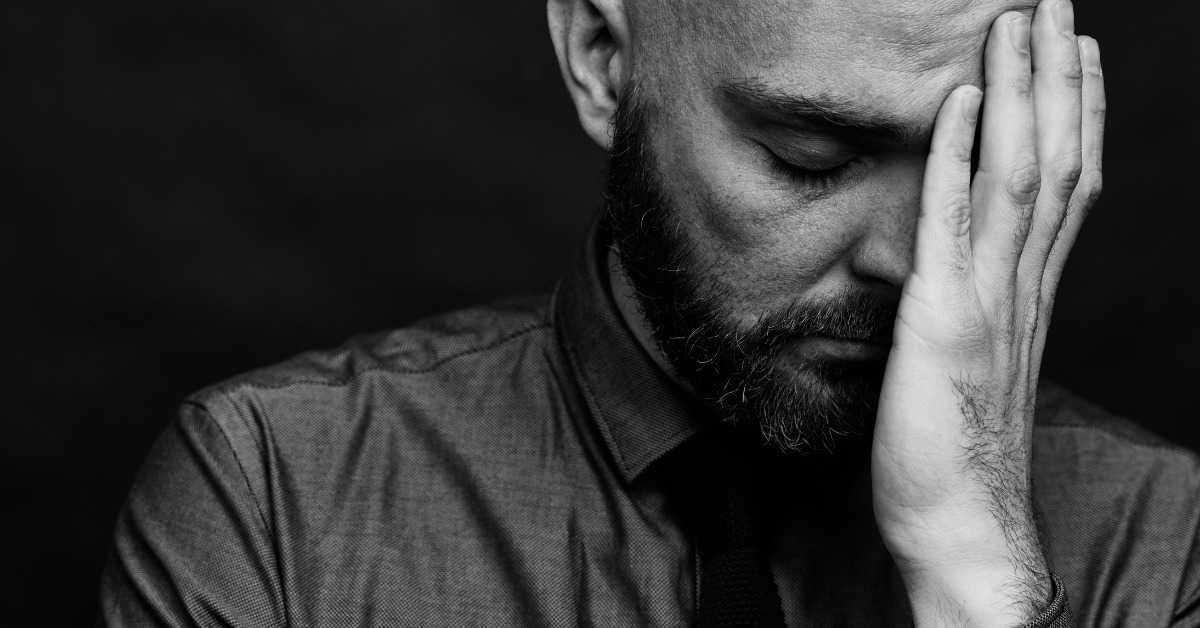Is the fear of failure holding you back from success? Do you fear making a complete fool of yourself? Every one of us fears failure, and we all fear losing our jobs or failing an important exam. But if such fears hold you back from succeeding or getting what you want, it can be a problem.
Characteristics of Atychiphobia
Phobias are irrational fears that can affect one’s life. There are many phobias such as fear of heights, animals, thunder, choking, and the list goes on. People who have atychiphobia fear failure to the extent that they can not try anything new out of fright. Instead of seeing failure as a lesson, we perceive it as a defeat. We also believe that if we fail at something, it means we’ve failed as people.
It is not failure we fear; it’s the imagined negative consequences that follow it. This fear leads to low self-esteem, avoidance of challenging tasks, and pessimism. When it comes to failure, there are five main fears that people have:
- Having feelings of shame and embarrassment.
- Being forced to change their perception of themselves in a negative way.
- Uncertainty about the future
- Upsetting important people.
- Others who are essential to you lose interest.


Symptoms of Atychiphobia
Fear is usually a self-defense mechanism, and it helps you stay away from potentially harmful situations. On the other hand, fear of failure will prevent you from trying, instill self-doubt, suppress your progress, and possibly lead you to compromise your values. Following are some symptoms of atychiphobia:
Physical Symptoms
Physical signs and symptoms include:
- breathing difficulties
- unusually high heart rate
- chest tightness or pain
- trembling or shaking sensations
- lightheadedness or dizziness
- hot or cold flashes
- digestive distress
- sweating
Emotional Symptoms
The following is a list of emotional symptoms one may face:
- intense panic or anxiety
- overwhelming desire to flee the situation that causes the fear
- feeling detached from yourself
- feeling as if you’ve lost control over a situation
- fearing death or passing out in general
- feeling powerless over your fear
Causes of Atychiphobia
Most of the time, life coaches or counselors can help people overcome their fears by providing them with tools and skills. However, this fear becomes a significant issue for a few. Some of the reasons why people are afraid of failing are listed below.
- Patterns from childhood—Adults who are overly critical of their children can cause them to internalize harmful mindsets.
- Perfectionism—The desire to be seen as perfect can make us fearful of anything that could harm our reputation.
- Over-identification with failures—The ego may cause us to over-identify with failures.
- Fear of failure is frequently linked to embarrassing or traumatic events in the past.
- Negative thoughts and negative self-talk from overly strict parents, demeaning friends, or judgmental authority figures can all contribute to this crippling fear.
Atychiphobia and Work-Life
Fear of failure can arise due to an organization’s environment and perceived pressure to succeed. Unfortunately, that so many businesses today have a perfectionist culture: a set of beliefs that failure is unacceptable. An organization’s stress and terror levels will almost always rise due to this. Cover-ups, finger-pointing, and shifting of blame are all expected outcomes.
Some employees in a company are so caught up with their previous achievements that they are unwilling to stretch themselves and take another risk. They rest on their previous accomplishments and never move on. Working in such a setting can worsen existing failure fears, and you can become so afraid of failing that you avoid taking risks. When you don’t put yourself out there, you’re missing out on opportunities to showcase your creativity and strengths.


Coping Up
When you have atychiphobia, you may also engage in self-handicapping. This means you’re afraid of failing so much that you’re sabotaging your efforts. For example, you might decide not to begin a major school project because you fear failing. The idea is that failing by not starting is preferable to failing after putting in a lot of effort.
Self-help is frequently recommended as a first-line treatment for fear of failure. Here are some ideas for dealing with your fear of failure:
Redefine Failures
Changing your perspective on failure can help you cope. Consider failure as:
- An opportunity to gain knowledge
- Everyone can relate to this natural and universal aspect of life.
- Rather than being a threat, it is a challenge to overcome.
Be Realistic
Try to see the situation for what it is, and ask yourself:
- What are the probable outcomes?
- What can I do if the worst-case scenario occurs?
- How can I prepare to deal with problems as they arise?
Be Compassionate to Yourself
Failure is simply a stepping stone to success. It can assist you in learning from your mistakes and be a key component in moving forward in your career. If you fail at something, that does not mean you must give up. Getting back on your feet after a setback is a sign of progress. You’re learning new things and taking further steps toward your goals. The fear of failure may have developed during childhood or at a point in life when failing at something resulted in embarrassment, bullying, or trauma. To lower the blow of the failure, try the following actions:
- Recognize that everyone will fail at some point.
- When you fail, practice forgiving yourself.
- Concentrate on the failure as a failed task rather than a reflection of your worth.
- Even if the overall goal was not achieved, consider what went well in the situation.
- Challenge negative self-talk.
Practice Visualization
Many experts advise using visualization to overcome the negative thoughts that come with failure. Rather than allowing negative self-talk to keep you from taking risks, visualize how wonderful life will be once you succeed. You can overcome your fear of failure by imagining yourself as a success.
Ending Notes
However, we can choose to see failure as a valuable learning opportunity. When we fail, we should look for essential lessons. Failure can only hold us back if we let it. In fact, it has the potential to be a significant growth catalyst. Through lifestyle changes, you may be able to overcome mild atychiphobia independently. Make an appointment with a psychologist if your fear of failure is severe and causing you to miss out on many opportunities in life. There are various treatment options available, and the sooner you begin therapy, the more effective it will be.
FAQs
1. Is atychiphobia rare?
Atychiphobia, which is thought to affect between 2% and 5% of the population, is the unjustified chronic and persistent fear of doing something wrong in your life or making any kind of mistake. Anything that suggests failure will result in internalized shame, increased fear, and anxiety.
2. What is the rarest phobia?
Xanthophobia, the fear of yellow color is the most uncommon phobia.
3. Is atychiphobia curable?
It may be possible to overcome mild atychiphobia on your own through lifestyle changes. If your fear of failure is extreme, causing you to miss out on many opportunities in life, talk to your doctor about it.
Book an appointment now, to answer all your queries. You can book an appointment with the top psychologist in Lahore in Pakistan through Marham by calling at Marham helpline: 0311-1222398 or by online booking facility through the website or Marham mobile app.
Can’t Find The App?
Android Users:
https://play.google.com/store/apps/details?id=controllers.marham.marhammed&hl=en
Drop a review for us at Playstore if you’ve had a good experience!
iPhone Users:
https://apps.apple.com/pk/app/marham-find-a-doctor/id1095243102
Stay Home. Stay Safe!

